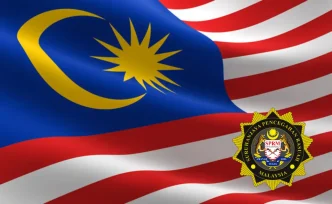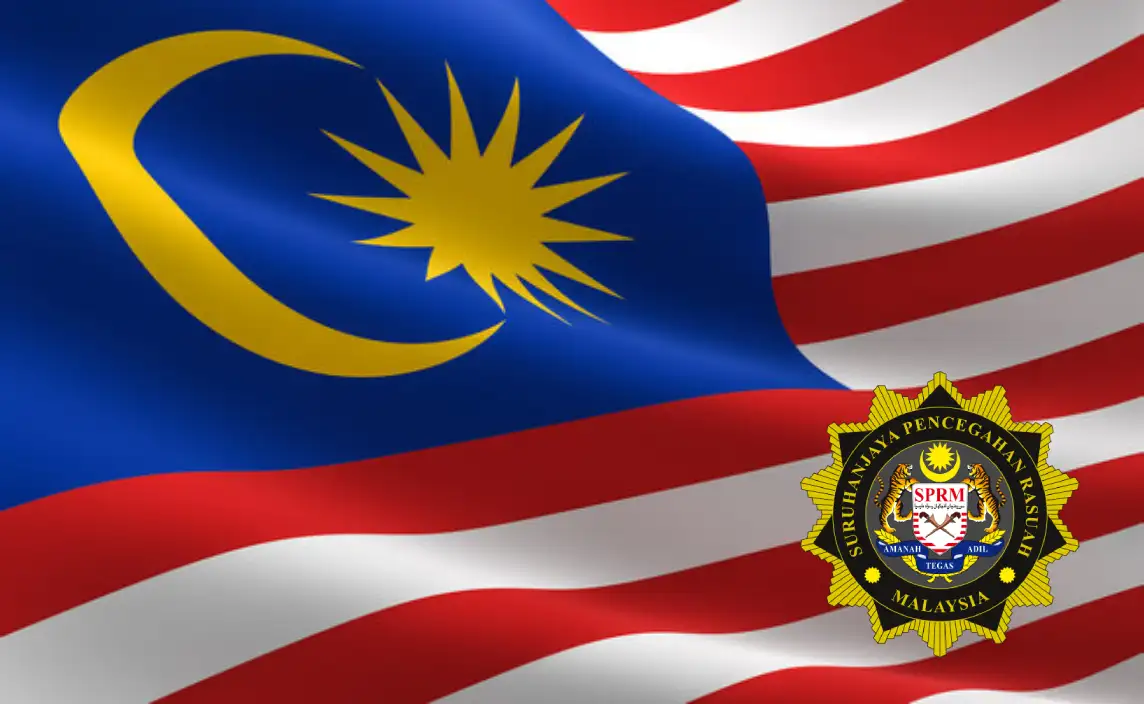A high-profile investigation into a Klang Valley highway project in Malaysia has uncovered startling allegations of financial misconduct, with claims that millions in sukuk funds—Islamic bonds intended for development—were diverted for personal gain, including gambling. The Malaysian Anti-Corruption Commission (MACC) is leading the probe, which has already resulted in the seizure of assets worth tens of millions of ringgit and exposed a web of luxury goods and hidden wealth.
Funds Allegedly Diverted for Gambling
The MACC’s chief commissioner, Tan Sri Azam Baki, revealed that approximately 20 million Malaysian Ringgit (US$4.2 million) of sukuk funds linked to the highway project were allegedly used for gambling. In a statement reported by the Malay daily Sinar Harian on June 2, 2025, Azam Baki stated, “We have uncovered evidence suggesting misuse of funds on a significant scale” as part of the ongoing investigation. While the exact nature of the gambling activities remains unclear, the disclosure has raised serious questions about oversight and accountability in Malaysia’s infrastructure financing.
In addition to the financial discrepancies, investigators discovered 300 bottles of premium liquor in a storeroom associated with the case. Though possession of such items is not inherently illegal, their presence has fueled speculation about the lifestyle of those under scrutiny. The MACC has recorded statements from 45 witnesses as of June 1, indicating the breadth of the investigation into the project’s financial dealings.
Massive Asset Seizures Paint a Picture of Extravagance
The scale of the alleged misuse of funds is further underscored by the MACC’s seizure or freezing of assets valued at an estimated 85.6 million Malaysian Ringgit (US$18.1 million). Among the assets are 14 individual bank accounts holding 4.5 million Malaysian Ringgit (US$950,000), eight company accounts containing 33 million Malaysian Ringgit (US$7 million), and a collection of luxury vehicles worth 7.65 million Malaysian Ringgit (US$1.6 million). Investigators also confiscated high-end handbags valued at 3 million Malaysian Ringgit (US$635,000), luxury watches worth 7 million Malaysian Ringgit (US$1.5 million), and properties totaling 24.5 million Malaysian Ringgit (US$5.2 million).
These seizures paint a stark contrast to the intended purpose of sukuk funds, which are structured under Islamic financial principles to support ethical and community-focused projects. The Klang Valley, a densely populated and economically vital region surrounding Kuala Lumpur, relies on such infrastructure initiatives to alleviate traffic congestion and spur growth. The alleged diversion of these funds, if confirmed, could undermine public trust in both the financial mechanisms and the governance of major public works.
Central Figure Under Scrutiny
At the heart of the investigation is a concession holder bearing the honorific title “Tan Sri,” a prestigious designation in Malaysia often awarded for significant contributions to society. According to Azam Baki, this individual is currently receiving medical treatment at a private hospital, though specifics about their condition or identity have not been disclosed. “The Tan Sri involved in the case is still being warded at a private hospital” Azam Baki noted in his statement to Sinar Harian on June 2. The MACC has refrained from making public accusations of wrongdoing at this stage, emphasizing that the investigation remains active.
The focus on a high-ranking figure has intensified public and media interest in the case, with many questioning how such large-scale financial irregularities could have gone undetected. While the MACC has not confirmed the specific allegations against the individual, the agency’s actions suggest a deep concern over the potential misuse of project financing for personal enrichment.
Broader Implications for Malaysia’s Infrastructure Sector
The Klang Valley highway project scandal comes at a time when Malaysia is striving to bolster its reputation as a hub for ethical investment and sustainable development. Sukuk bonds, which adhere to Sharia-compliant principles prohibiting interest and speculative risk, have become a cornerstone of the country’s strategy to fund infrastructure without burdening future generations with debt. However, allegations of misuse threaten to tarnish this image, potentially deterring investors and raising doubts about the oversight of public-private partnerships.
Analysts suggest that the case could prompt a reevaluation of how sukuk funds are monitored and disbursed. “If these allegations are substantiated, it may lead to tighter regulations and greater transparency requirements for concession holders” said Dr. Noraini Ismail, a financial ethics expert based in Kuala Lumpur, in a recent interview with a local outlet. Such reforms, while necessary, could slow down project timelines and increase costs, impacting Malaysia’s ambitious infrastructure goals.
Moreover, the scandal highlights broader systemic challenges within Malaysia’s governance framework. Corruption has long been a concern in the country, with high-profile cases like the 1MDB scandal—where billions of dollars were allegedly siphoned from a state investment fund—still fresh in public memory. While the current investigation is on a smaller scale, it serves as a reminder of the persistent risks associated with large-scale public projects.
Public Reaction and Political Fallout
The unfolding probe has sparked significant public outcry, with many Malaysians expressing frustration over the apparent misuse of funds meant for public benefit. Social media platforms have been abuzz with comments decrying the extravagance of the seized assets, with some users questioning why luxury watches and handbags were prioritized over pothole repairs and traffic solutions in the Klang Valley. “This is our money, meant for our roads, not for someone’s casino trips” read one widely shared post on X, reflecting a broader sentiment of betrayal.
Politically, the case could have ramifications for the ruling coalition, which has pledged to root out corruption and improve governance. Opposition leaders have already seized on the scandal to criticize the government’s handling of infrastructure contracts, calling for an independent audit of all ongoing projects funded by sukuk bonds. While the MACC operates independently, any perception of leniency or delay in addressing the allegations could further erode public confidence in Malaysia’s institutions.
Legal and Ethical Considerations
As the investigation progresses, legal experts caution against premature conclusions, noting that the allegations remain unproven. Under Malaysian law, individuals are presumed innocent until proven guilty, and the MACC must build a robust case based on verifiable evidence. The agency’s focus on asset seizures and witness statements suggests a meticulous approach, but it also raises questions about the timeline for potential charges or resolutions.
Ethically, the case underscores the importance of accountability in public financing. Sukuk funds, by their nature, carry a moral imperative to serve the community, making any diversion particularly egregious in the eyes of many Malaysians. Religious leaders and civil society groups have called for a thorough investigation, emphasizing that justice must be served without fear or favor.
Looking Ahead: What’s Next for the Probe?
With the MACC continuing to gather evidence and more witnesses expected to come forward, the Klang Valley highway project scandal is far from resolved. The health status of the central figure, referred to as “Tan Sri,” may delay certain aspects of the investigation, but it is unlikely to halt the agency’s efforts to uncover the full extent of the alleged misconduct.
For now, the Malaysian public watches closely, awaiting answers about how funds intended for critical infrastructure could have been so dramatically misused—if the allegations hold true. The outcome of this case may well shape the future of public trust in Malaysia’s financial and governance systems, raising pressing questions about oversight, accountability, and the true cost of corruption.
















